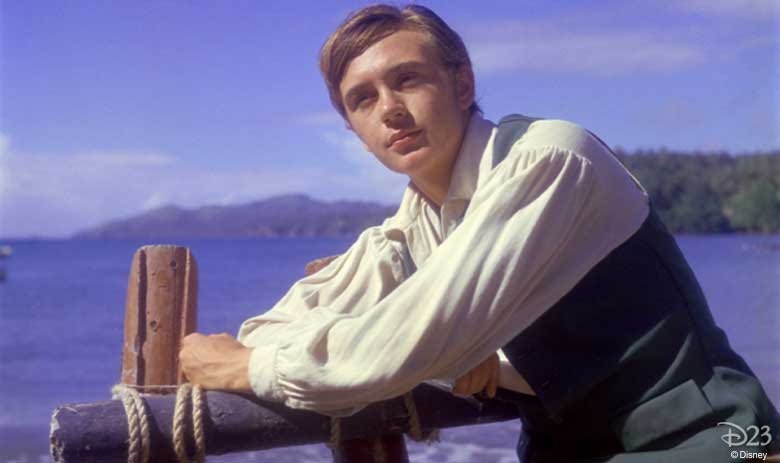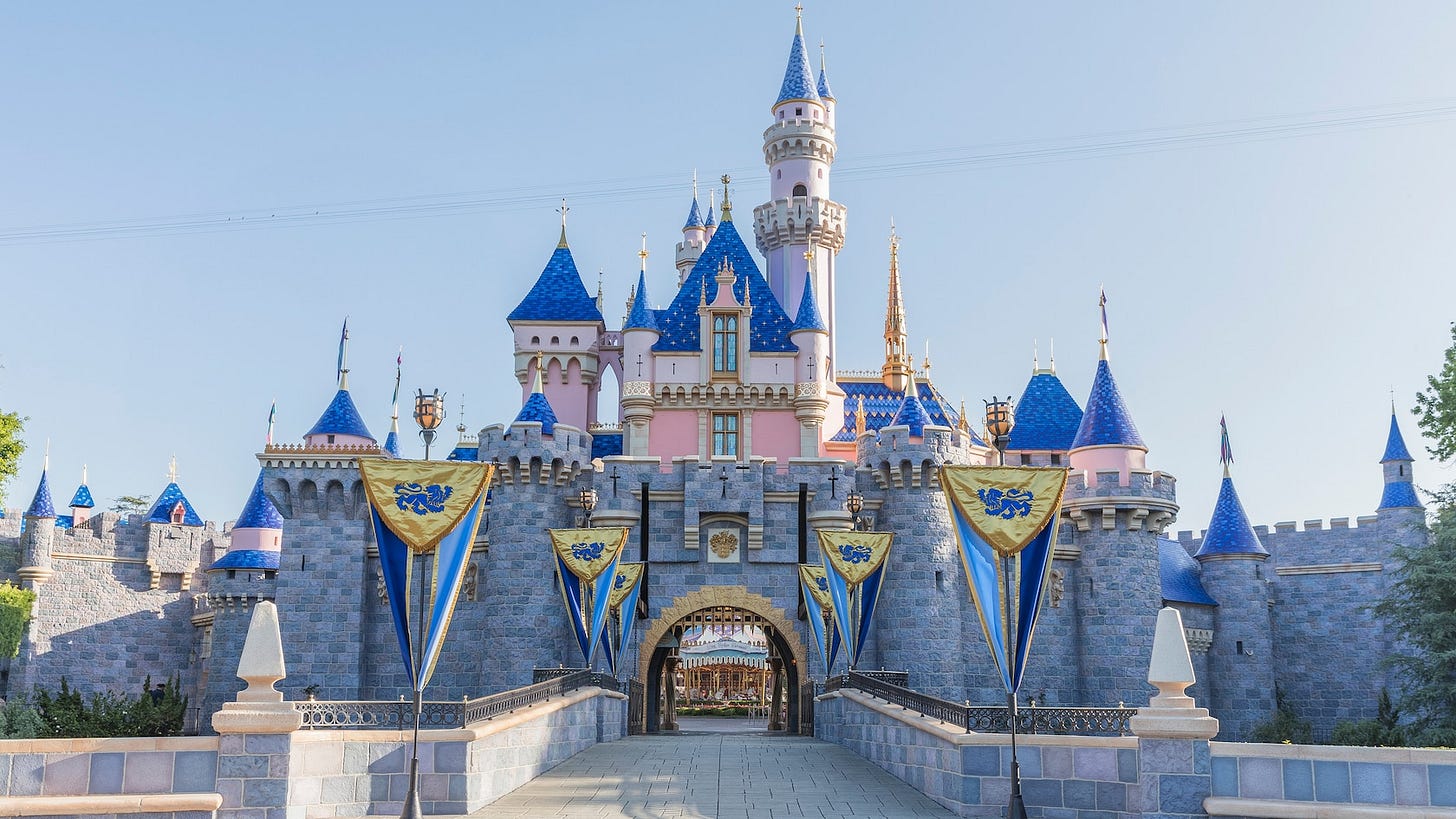Disney’s Homophobia is Nothing New
Their refusal to act on recent anti-gay and anti-trans bills is a natural progression of the company's history
Much discourse is being had about Disney CEO Bob Chapek’s truly bizarre and incomprehensible response to backlash over funding every sponsor and co-sponsor of Florida’s heinous new censorship bill, colloquially referred to as “Don’t Say Gay.” From Chapek claiming that all Disney can do to support LGBTQ+ rights is to produce “inspiring content” to claiming in a recent shareholders meeting that “When [Disney donates] money to different political candidates, [they] have no idea how they’re going to vote in the future,” the company seems to be making every wrong move. The fact is, despite queer people making up a sizable chunk of the Disney’s consumer base, they have a long history of anti-queer discrimination. Here are just a few examples.
1963: Tommy Kirk
Tommy Kirk was a child actor who starred in several popular live-action Disney films including Old Yeller (Robert Stevenson, 1957), The Shaggy Dog (Charles Barton, 1959), The Swiss Family Robinson (Ken Annakin, 1960), and The Absent-Minded Professor (Robert Stevenson, 1961). In 1963, the mother of his then-boyfriend outed him to the studio. Despite the massive success of his films, this led Disney to decide to not renew Kirk’s contract.
Reflecting on this incident thirty years later, he said that “Even more than MGM, Disney [in the early 1960s] was the most conservative studio in town. They were growing aware. They weren’t stupid. They could add two and two, and I think they were beginning to suspect my homosexuality… I noticed people in certain quarters were getting less and less friendly. In 1963 Disney didn’t renew my option and let me go.” This greatly damaged his career, and he quit acting in the early 1970s.
Since then, Disney has repeatedly tried to pretend that this never happened. In 2006, they recognized him as a “Disney Legend,” an award that Disney gives out to individuals who have made significant contributions to the company. His official page on the D23 website is comical in how it tap-dances around how poorly Disney treated him. There is no mention of his queerness, nor of the circumstances surrounding his departure from the company. The closest they get is the sentence “Personal problems caused Tom some difficulties in the early 1960s.” They describe him as “undoubtedly the finest child actor to emerge from Disney,” who gave a “brilliant performance as Arliss Coates in Old Yeller.” If he was so great, then why did you let him go?
1978: The Greater Los Angeles Restaurant and Bar Association
In 1978, a group of lesbians and gay men decided they wanted to rent out part of Disneyland for a night. In order to make this happen, they formed the innocent-sounding organization “The Greater Los Angeles Restaurant and Bar Association,” as they knew Disney wouldn’t allow the event if they were up front with who would be attending. About a week before the event, higher-ups at the company found out and panicked. Disney couldn’t shut down the event, fearing an anti-discrimination lawsuit from the organizers, so they prepared for the worst possible scenario.
According to Sean Griffin, media scholar and author of Tinker Belles and Evil Queens: The Walt Disney Company from the Inside Out, told Orlando Weekly that “Live music was canceled at the last second so that there would be no encouragement for same-sex dancing. They beefed up security. They told people who were working that day, or at least for that night, that courtesy was optional.” And speaking of same-sex dancing…
1985: Homosexual fast dancing
In 1957, Disneyland began a policy that anyone at their summer Date Night events at Plaza Gardens who wanted to dance had to do so with a partner of the opposite sex. This rule led to several discrimination lawsuits filed against Disney. In 1980, Disneyland security evicted Andrew R. Exler and Shawn Elliott from the park for dancing together at Tomorrowland Terrace during a Disneyland Date Night. They sued the park, and in May 1984, Judge James R. Ross ruled that Disneyland had to allow same-sex dancing. The catch was that this ruling was only to apply to Exler and Elliott. Disneyland lifted the policy shortly after Videopolis opened in 1985, since teenagers requested its removal so that they could dance with their friends.
This wasn’t the end of Disney’s dance-based discrimination against same-sex couples. In 1988, Eric Hubert, Jeffrey Stabile Jr., and Christopher Drake sued Disney after a security guard informed them that “touch dancing is reserved for heterosexual couples only.” Both cases are outlined in greater detail by Kevin Perjurer of Defunctland in his video about the history of Videopolis.
2021: Joel Hopkins lawsuit
In June 2021, Joel Hopkins sued The Walt Disney Company, ABC Signature Studios, and Riverside Television Services for discrimination based on his sexual orientation. Around the time of his promotion from Director of Production Finance for Buena Vista TV to VP of Production Finance for Touchstone TV, individuals at the company—including his supervisor Jim Hedges—became aware that Hopkins was a gay man and subjected him to discrimination. Here are some excerpts from the complaint filed by Hopkins’ attorney to the Los Angeles Superior Court:
“Plaintiff has direct and repeated complaints to HR about the discrimination he has endured while employed by Defendants and, concomitantly, the related failures to promote him and to pay him at the same level as other department heads.”
“After his sexual orientation became known to his superiors and after being discriminated against and put on a dead-end career track and repeatedly denied promotions with no remedy or relief from HR, Plaintiff is informed and believes that yet again, in or around April 2021, several promotions occurred, but Plaintiff once again was not promoted… Plaintiff is informed and believes that these promotions occurred despite representations that Disney was hurting financially and not promoting.”
Disney only cares about (some) queer people when they can be used for profit
Disney does not care about queer people, they only care about money. Hence recent branding trying to position the company as forward-thinking and progressive, doing nothing of substance to back it up. They’ll celebrate Howard Ashman for pretty much single-handedly resurrecting Disney’s animation division in the late 1980s, but say the work he created about alienation and loneliness while living and dying as a gay man during the AIDS crisis was apolitical. They’ll lift the ban on same-sex couples dancing, but only for the two people who sued, and then maybe for everyone if it inconveniences straight people. They’ll sell rainbow Mickey ears at Disneyland while battling anti-gay discrimination lawsuits. You can pay $15 at your local AMC to see two nameless women kiss in the background of one shot in Star Wars: The Rise of Skywalker, but they’ll immediately fold and remove it for international markets. There’s nothing “inspiring” about this content.







